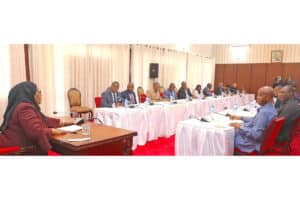
Trading Bitcoin has become very popular all over the world, and more people are looking into the benefits of cryptocurrency in Tanzania. But as the market develops, so does the necessity for safe and dependable methods of purchasing and selling Bitcoin.
Focusing on safe platforms, the value of licensed exchanges, and best practices to safeguard your assets, this guide will show how people in Tanzania could securely start with Bitcoin trading.
Importance of Security in Bitcoin Trading
When it comes to cryptocurrency, security is essential. Bitcoin trades can’t be undone, so once you send money, you can’t get it back unless the other person agrees to return it. Tanzanian traders therefore need to make the most of safe platforms that offer protection against scams, hacking, and fraud.
Furthermore, as cryptocurrencies such as Bitcoin are somewhat new in Tanzania, traders should be aware of the legal environment and only use exchanges following local and international rules. This makes sure that your investments are safe and protected by the law.
Choosing a Secure Platform for Bitcoin Trading
Selecting the right platform is one of the most essential steps towards guaranteed safe Bitcoin trading. Not all exchanges are made equal, hence choosing a trustworthy one will protect you
from fraud and other risks. Let’s examine factors to be taken into account while deciding on a site for safe Bitcoin purchase in Tanzania:
1. Regulation and Licensing
Generally speaking, licensed and controlled exchanges are safer since they follow rigorous policies meant to safeguard customers. Though the legal environment for cryptocurrencies is still developing in Tanzania, it is imperative to select platforms that follow global norms for legality and safety.
Frontnode is a decent example of such a website since it provides Tanzanian consumers wishing to buy Bitcoin safe and dependable solutions. Operating with an emphasis on openness, Frontnode makes sure traders may purchase and sell Bitcoin safely.
2. Reputation and User Reviews
Before signing up for any platform, it’s always a smart idea to browse reviews and user comments. Well-known sites with good user comments are less prone to be involved in fraud or have security problems.
3. Security Features
Always look for security elements such as two-factor authentication (2FA), encryption, and cold storage while selecting a Bitcoin trading platform. Cold storage refers to the majority of an exchange’s cryptocurrency holdings being stored offline, making them less vulnerable to hacking. These features greatly improve your fund security.
Frontnode and other platforms also guarantee encrypted transactions and safe wallet management, therefore giving users yet another degree of security.
How to Buy Bitcoin Safely
Having discussed the need for selecting a safe platform, let’s now explore safe Bitcoin buying techniques.
1. Create an Account with a Secure Exchange
Making an account on a reputable exchange such as Frontnode comes first. Make sure you follow the platform’s verifying processes and enter accurate information during registration. An added degree of security comes from verifying that the trade follows anti-money laundering (AML) and know-your-customer (KYC) rules.
2. Enable Security Features
Immediately upon registering your account, turn on two-factor authentication (2FA) and other platform security measures. This keeps unwanted access off your account.
Furthermore, it is advised to use a strong password and keep your backup codes in a secure location. Do not give anyone your password or any other private information. Doing so could let someone else into your account.
3. Deposit Funds Safely
The next step after setting up your account is to deposit funds. To prevent any mistakes, be sure you double-check the address or account information and apply a secure deposit method.
4. Buy Bitcoin
You can then purchase Bitcoin once your money shows up on the platform. You must be sure you are aware of the present market rates and transaction related costs. Real-time market data and open cost structures offered by sites like Frontnode help you to guarantee the best bargain available.
Selling Bitcoin Safely
Knowing how to sell Bitcoin safely is just as crucial as buying it. Here’s how you do it:
1. Choose the Right Time to Sell
Trading cryptocurrencies depends on timing. Bitcoin’s price can change a lot, so it’s important to keep an eye on the market and sell when you can make the most money.
2. Set Up a Secure Wallet
Stow your funds in a safe wallet if you intend to hang onto Bitcoin for a long time before selling. The safest choice is cold wallets, which keep Bitcoin off-line. You can return the Bitcoin to the exchange upon choosing to sell.
3. Sell on a Trusted Exchange
To sell your Bitcoin, navigate to the trading part of the platform and click the “sell” option. Specify the Bitcoin quantity you want sold and verify the transaction. Frontnode offers a secure environment for selling Bitcoin, ensuring that your funds are kept safe during the transaction.
Conclusion
With the correct tools and information, one can trade Bitcoin safely in Tanzania. Following best practices and using safe platforms like Frontnode will help you safeguard your assets and seize the expanding prospects in the Bitcoin space. Start today by making sure you always give security top priority in every transaction, keep educated about market trends, and use reputable exchanges.













